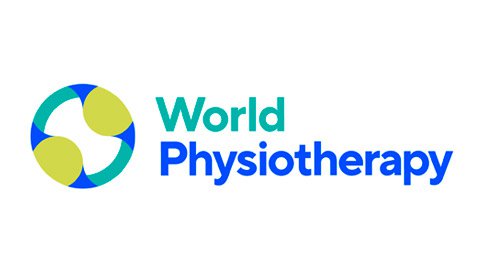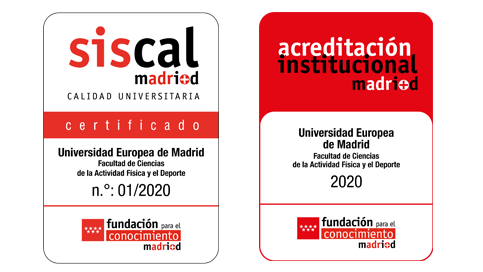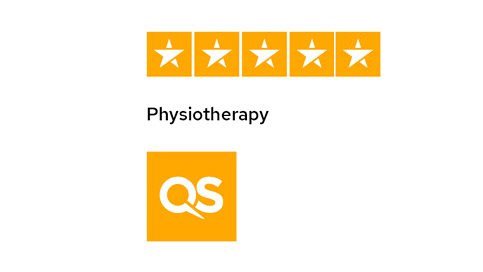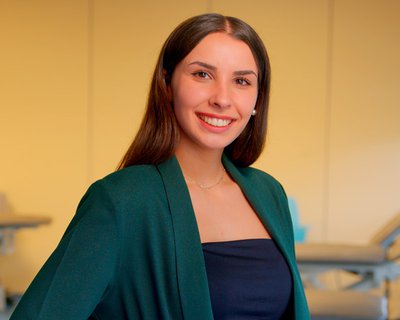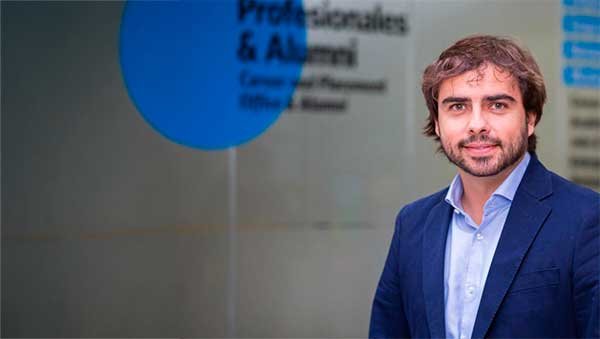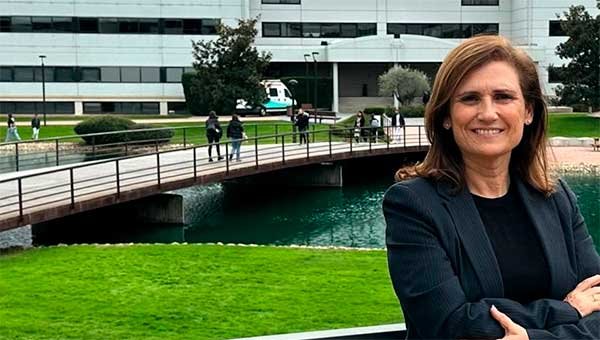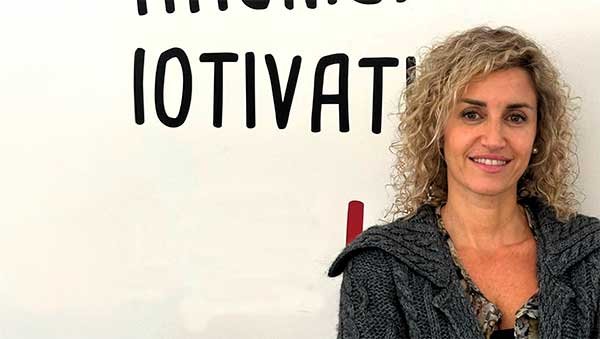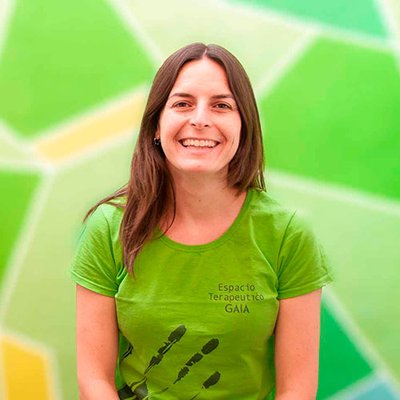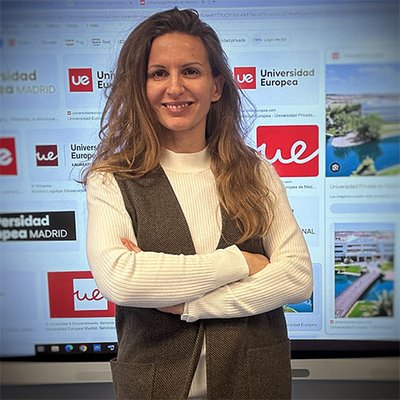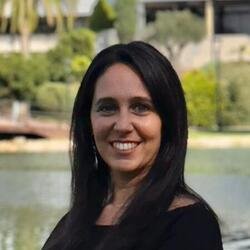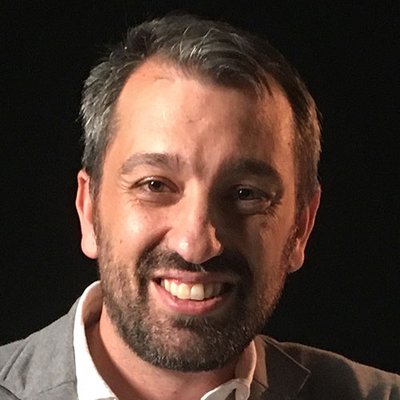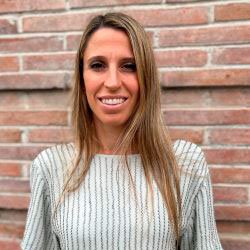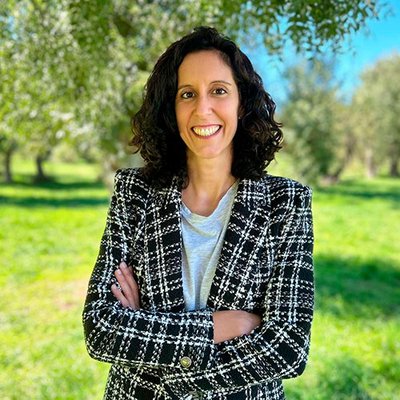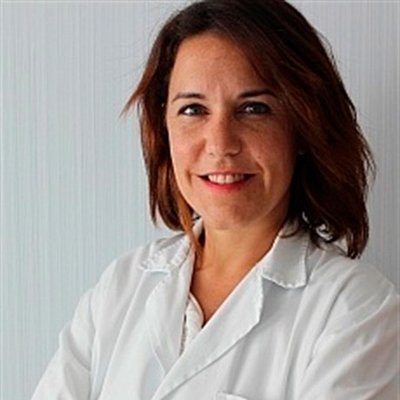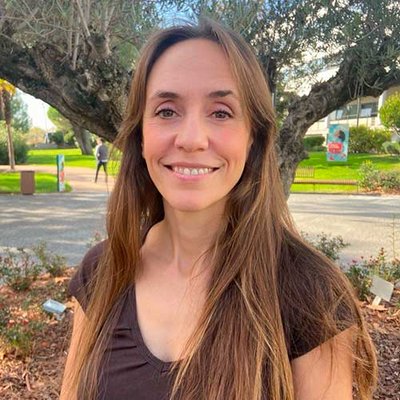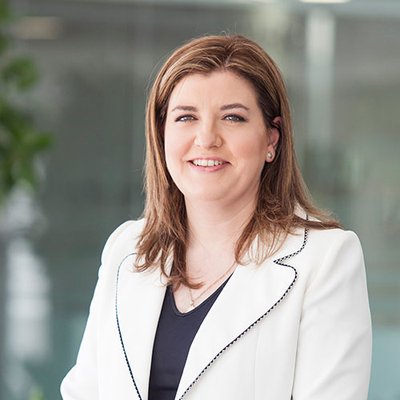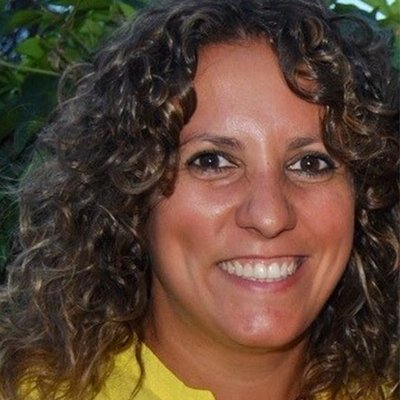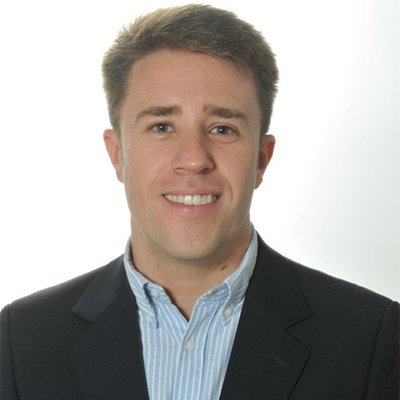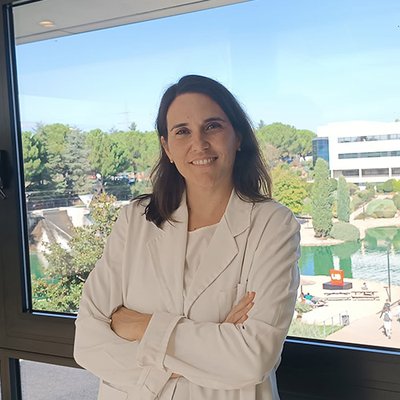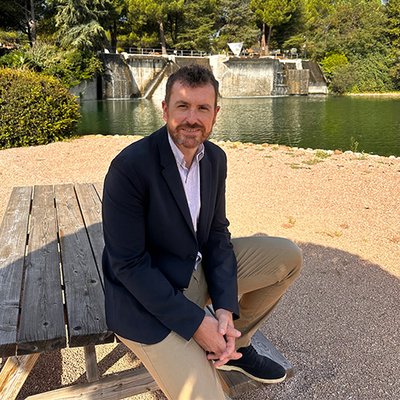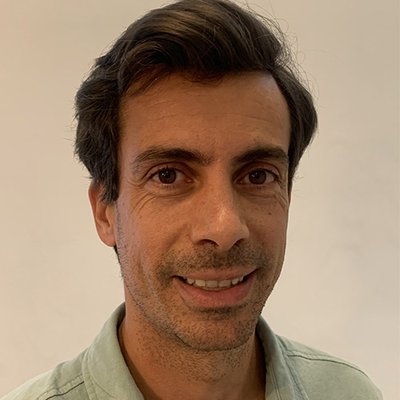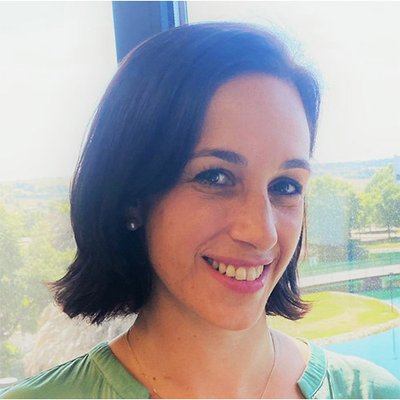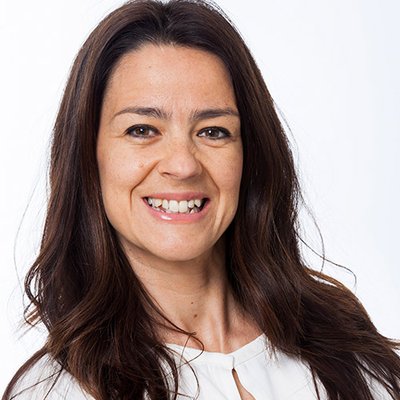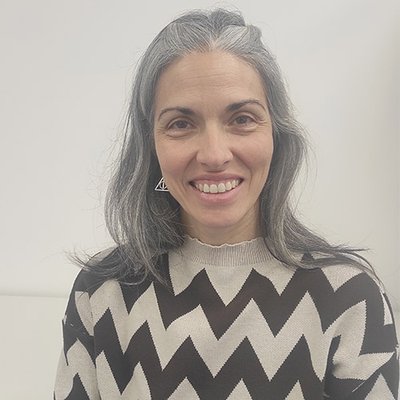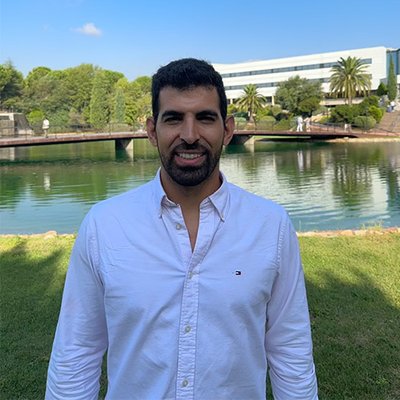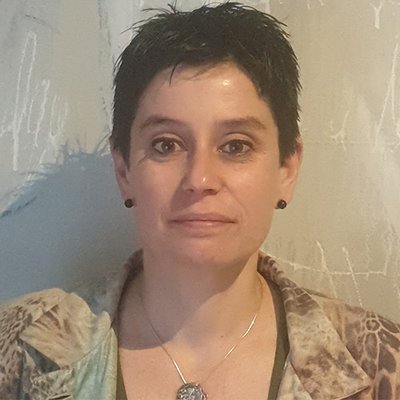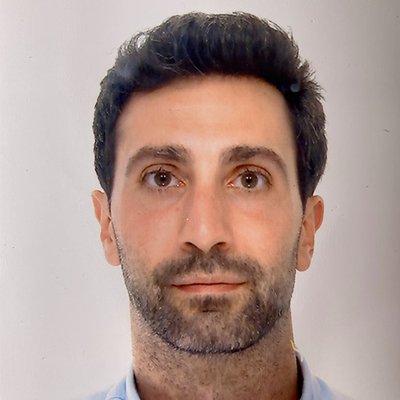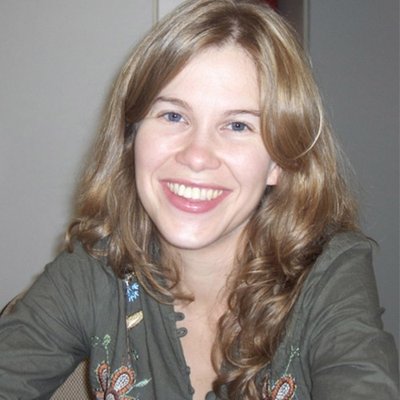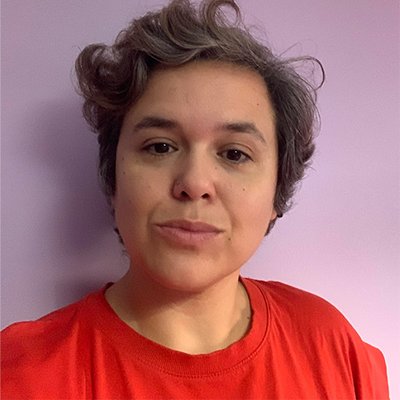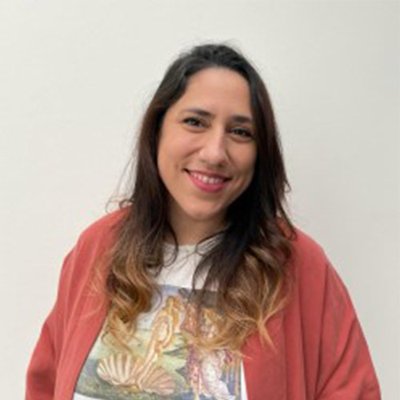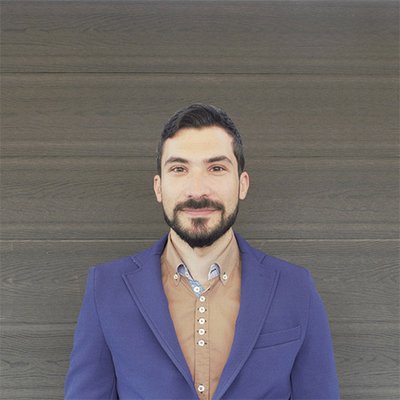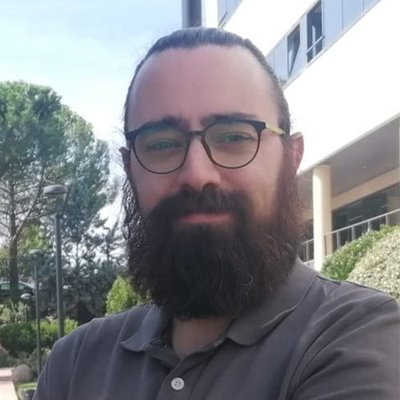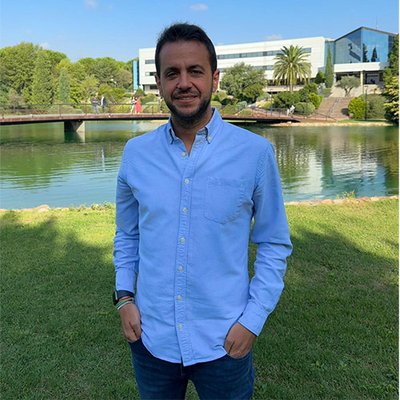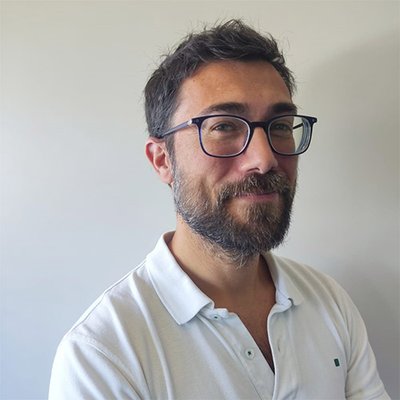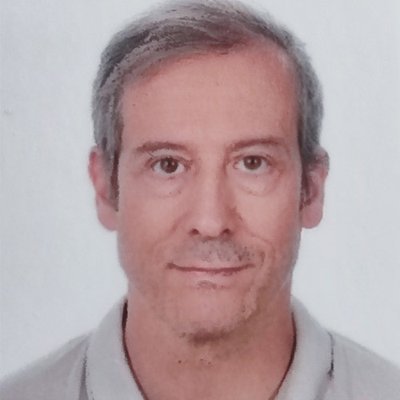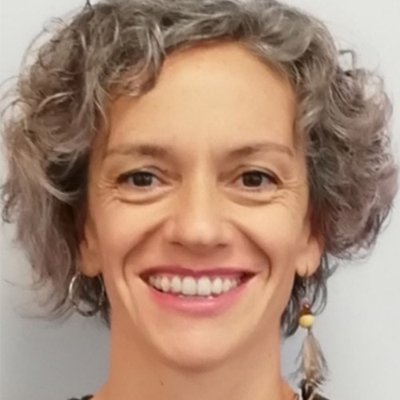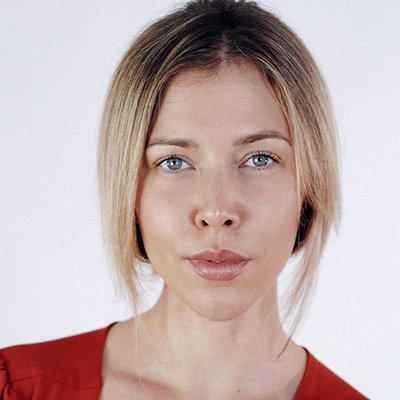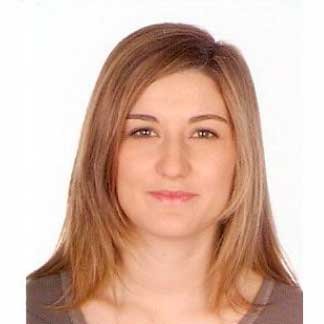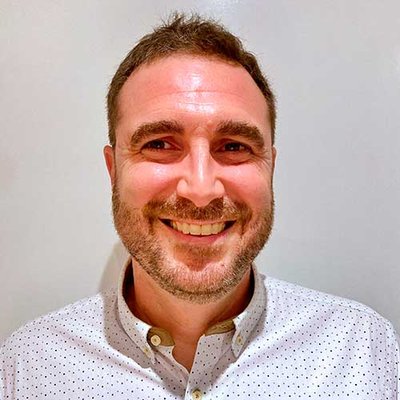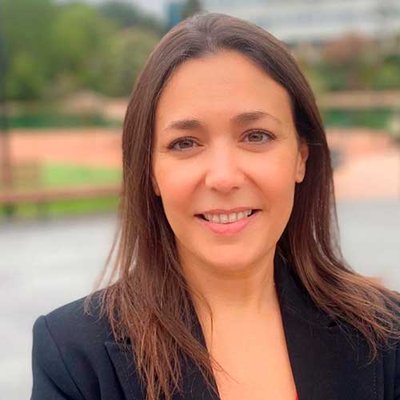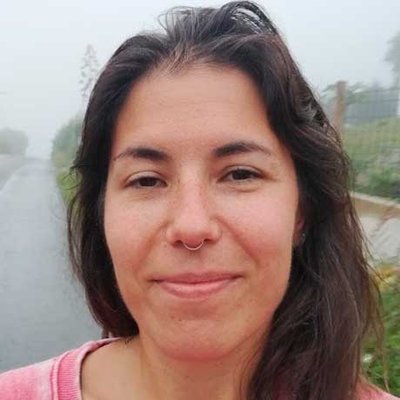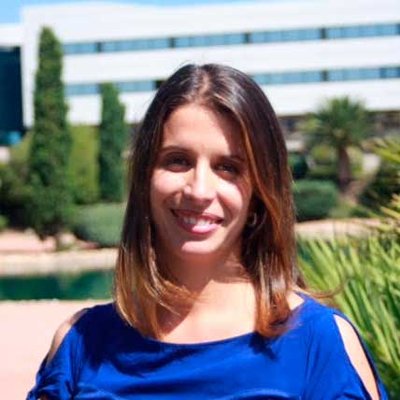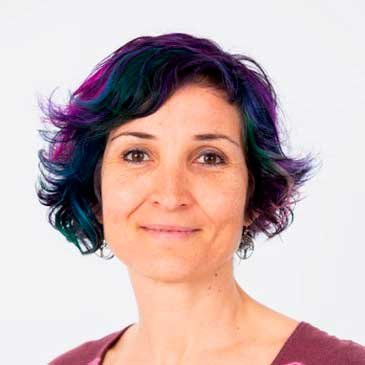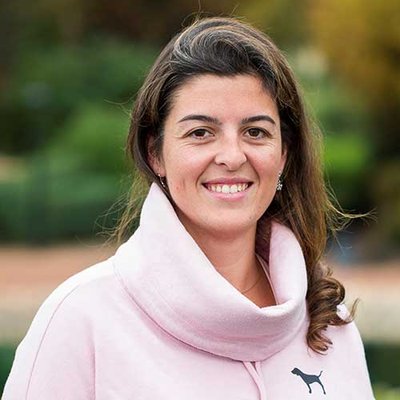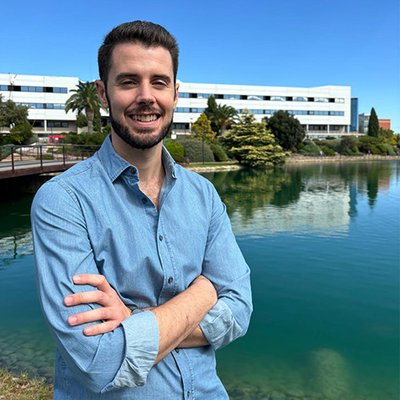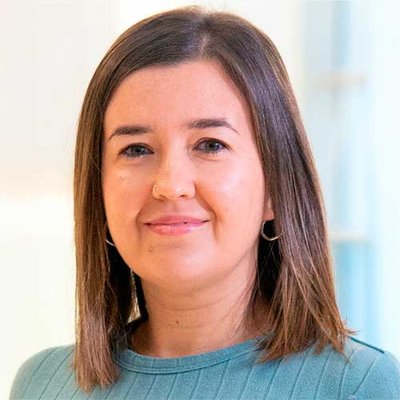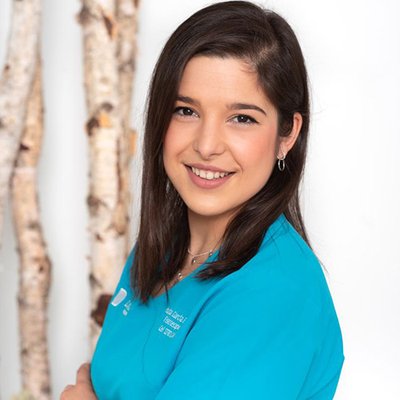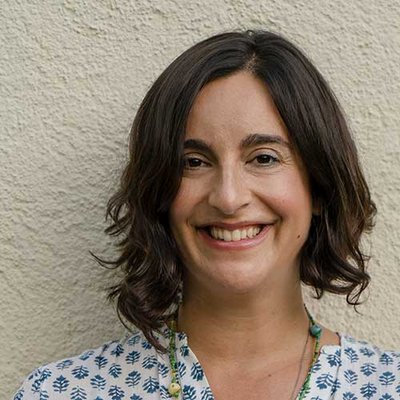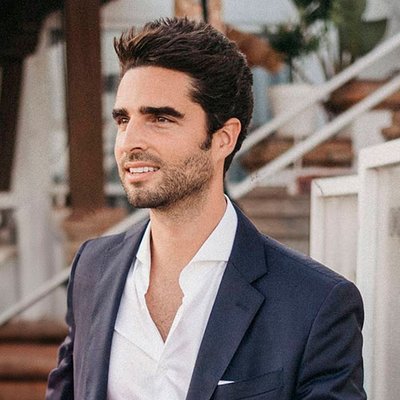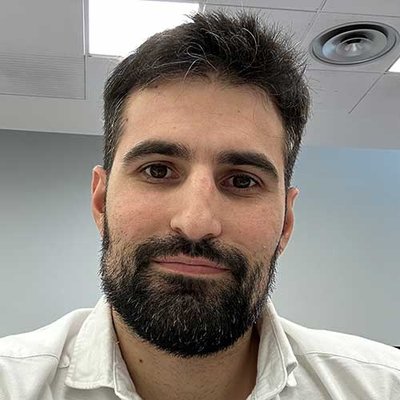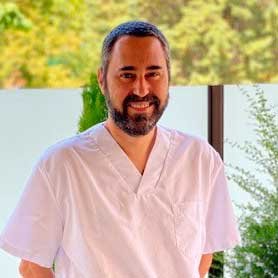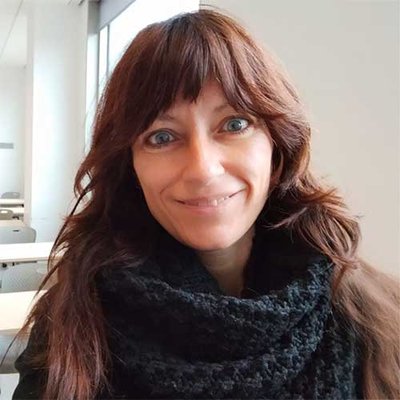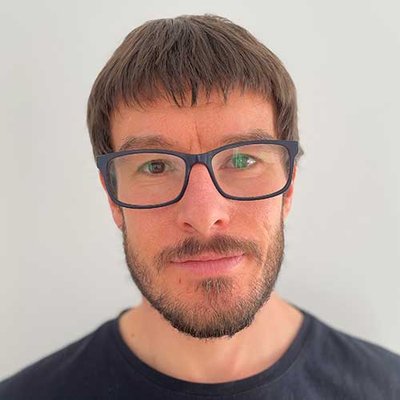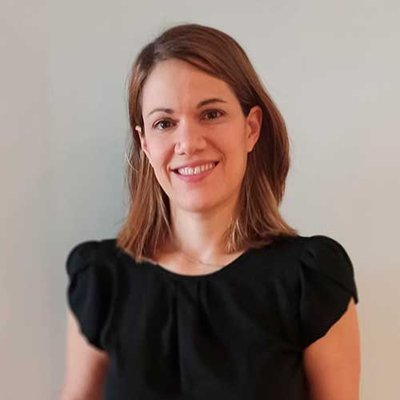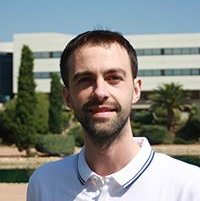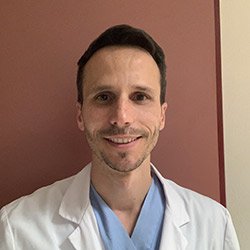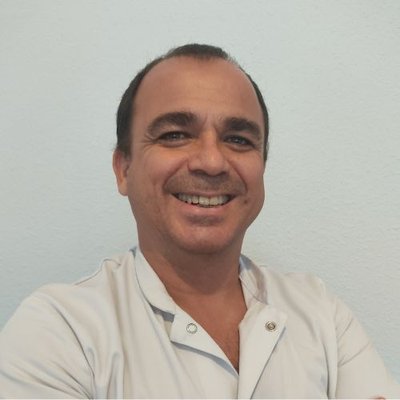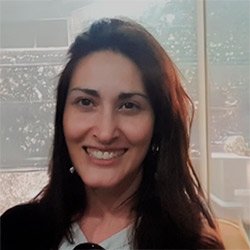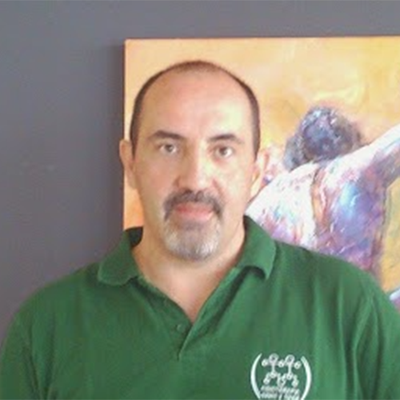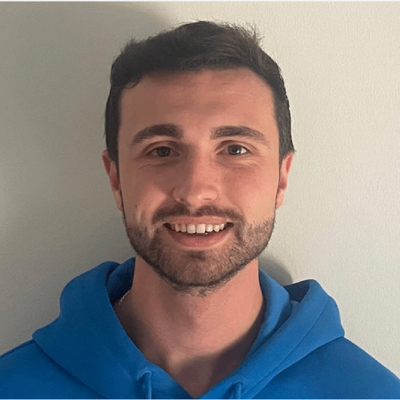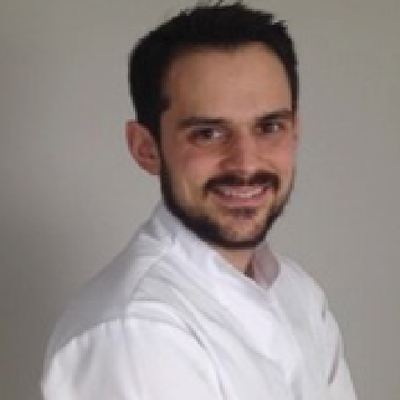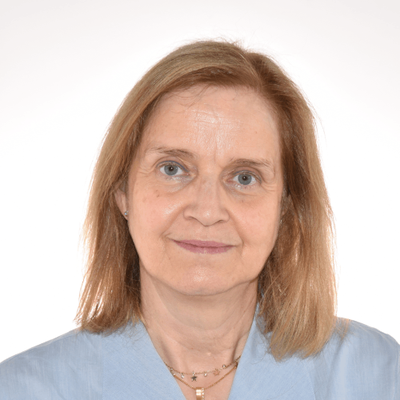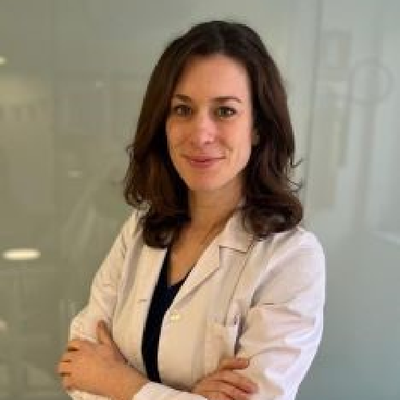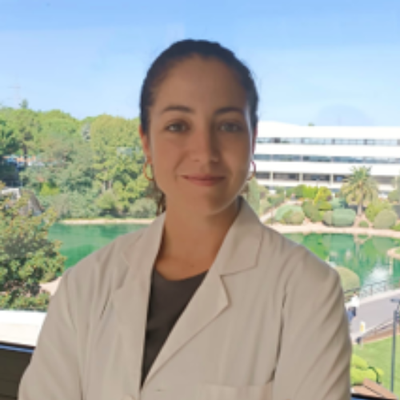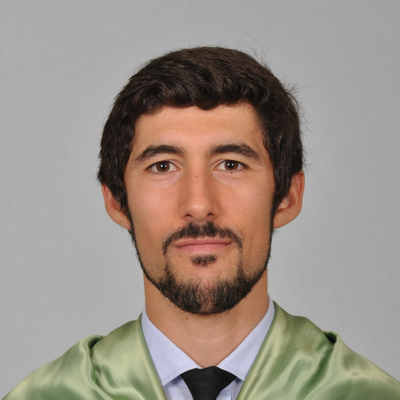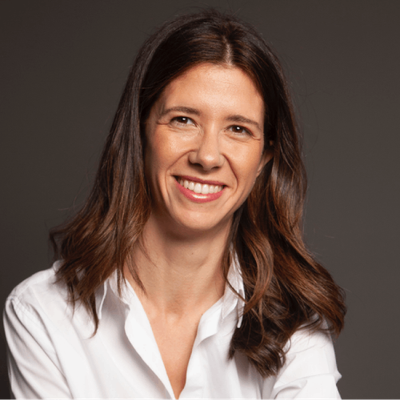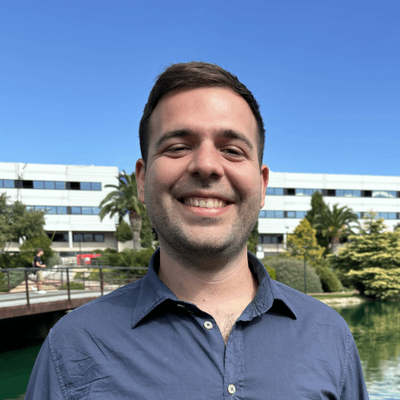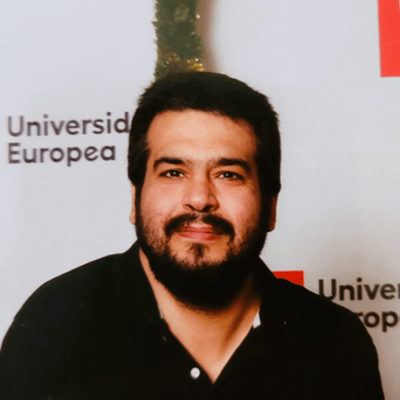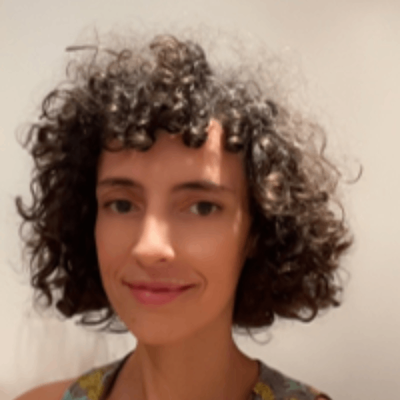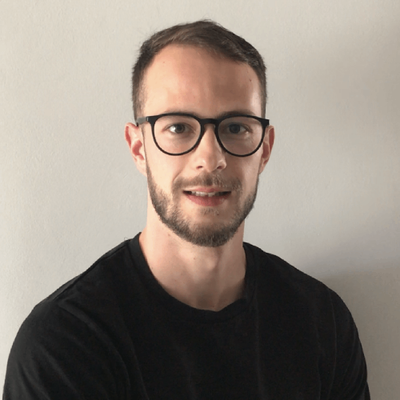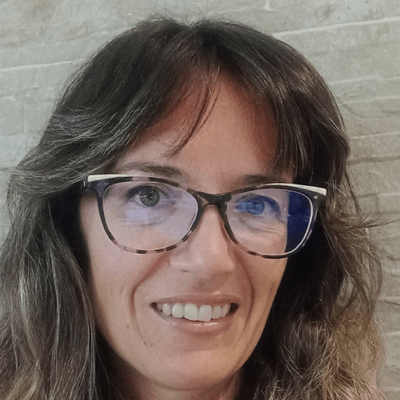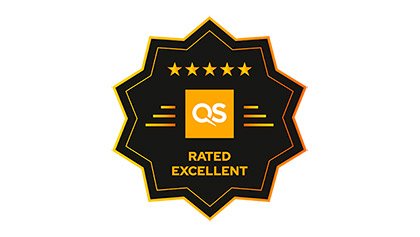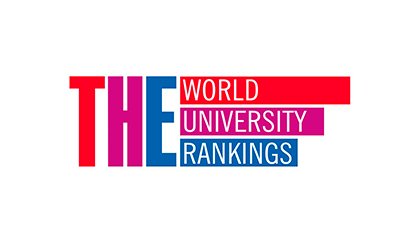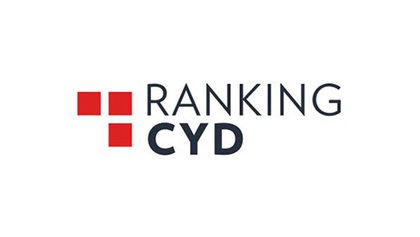Physiotherapy degree
The Bachelor’s Degree in Physiotherapy is a four-year programme designed to provide you with the skills and knowledge to work as a physiotherapist in a number of different settings, depending on your interests. Throughout the Physiotherapy degree, which is taught at our campus in Madrid, you will have access to top class facilities including a simulated hospital, structure and function lab, physio labs and more. During the first two years, you will study the bachelor’s degree in English and from the third year onwards in Spanish.
Universidad Europea has been named as the best private centre and the 2nd best in Spain for studying the Bachelor’s Degree in Physiotherapy, according to the 2022 ranking in the El Mundo newspaper.
Official degree issued by Universidad Europea de Madrid
| Campus-based | Villaviciosa de Odón | 4 years, 240 ECTS | Start: 14 sep. 2026 | Faculty of Medicine, Health and Sport |
Study Physiotherapy at the Universidad Europea
Accreditations and recognitions
Testimonials

Mobility offer
We have agreements with many universities in different continents so that you can choose the one that best suits your training.
Study plan
Curriculum structure
Curriculum offered in the current academic year
Click here to view the 2008 curriculum
Programa de estudios
PRIMER CURSO
| Materia | ECTS | Tipo | Idioma de impartición |
|---|---|---|---|
| Anatomy I | 6 | Compulsory | Inglés (en) |
| Structure and Function of the Human Body: Systems I | 6 | Basic | Inglés (en) |
| Biological Processes I | 6 | Basic | Inglés (en) |
| History and fundamentals of physiotherapy | 6 | Basic | Inglés (en) |
| Health Psychology | 6 | Basic | Inglés (en) |
| Health Research I | 3 | Compulsory | Inglés (en) |
| Structure and Function of the Human Body: Systems II | 6 | Basic | Inglés (en) |
| Biological Processes II | 6 | Basic | Inglés (en) |
| Applied physical assessment: Spinal column | 6 | Basic | Inglés (en) |
| Applied physical assessment: Upper and Lower Limb | 6 | Basic | Inglés (en) |
| Anatomy II | 3 | Compulsory | Inglés (en) |
SEGUNDO CURSO
| Materia | ECTS | Tipo | Idioma de impartición |
|---|---|---|---|
| Clinical-pathological interaction I | 6 | Compulsory | Inglés (en) |
| Integrated procedures in physiotherapy I | 9 | Compulsory | Inglés (en) |
| Biomechanics and analysis of human movement | 6 | Basic | Inglés (en) |
| Professional ethics and legislation | 3 | Compulsory | Inglés (en) |
| Physiotherapeutic approach to pain | 6 | Compulsory | Inglés (en) |
| Clinical-pathological interaction II (neurological system) | 6 | Compulsory | Inglés (en) |
| Integrated procedures in physiotherapy II (neurological system) | 6 | Compulsory | Inglés (en) |
| Public health and healthcare management | 6 | Basic | Inglés (en) |
| Clinical practice I | 6 | External Internships | Inglés (en) |
| Language | 6 | Optional | Inglés (en) |
| Therapeutic exercise | 6 | Optional | Inglés (en) |
TERCER CURSO
| Materia | ECTS | Tipo | Idioma de impartición |
|---|---|---|---|
| Clinical-pathological interaction III (Cardiorespiratory System) | 6 | Compulsory | Inglés (en) |
| Integrated procedures in physiotherapy III | 6 | Compulsory | Inglés (en) |
| Neurological Physical Therapy I | 3 | Compulsory | Inglés (en) |
| Orthopedic and traumatological physiotherapy | 6 | Compulsory | Inglés (en) |
| Health Research II | 3 | Compulsory | Inglés (en) |
| Clinical practice II | 12 | External Internships | Inglés (en) |
| Neurological Physical Therapy II | 6 | Compulsory | Inglés (en) |
| Cardiorespiratory physiotherapy | 6 | Compulsory | Inglés (en) |
| Integrated procedures in physiotherapy IV | 6 | Compulsory | Inglés (en) |
| Pelvic floor physiotherapy | 6 | Compulsory | Inglés (en) |
CUARTO CURSO
| Materia | ECTS | Tipo | Idioma de impartición |
|---|---|---|---|
| Practicum | 30 | External Internships | Inglés (en) |
| Sports Physical Therapy | 6 | Compulsory | Inglés (en) |
| Oncological physiotherapy | 6 | Compulsory | Inglés (en) |
| Clinical seminars I | 6 | Optional | Inglés (en) |
| Clinical seminars II | 6 | Optional | Inglés (en) |
| Craniofacial and maxillofacial physiotherapy | 6 | Optional | Inglés (en) |
| Dermatofunctional physiotherapy | 6 | Optional | Inglés (en) |
| Final degree project | 6 | Final Degree Project | Inglés (en) |
Programa de estudios
PRIMER CURSO
| Materia | ECTS | Tipo | Idioma de impartición |
|---|---|---|---|
| Structure & Function of the Human Body / Estructura y Función del Cuerpo Humano | 12 | BASICA | Inglés (en) |
| Cell & Tissue Biology / Biología Celular y Tisular | 6 | BASICA | Inglés (en) |
| Biophysics / Biofísica | 6 | BASICA | Inglés (en) |
| Basic Physical Therapy / Terapias Físicas Básicas | 6 | OBLIGATORIA | Inglés (en) |
| Anatomy: Musculoskeletal & Nervous Systems / Anatomía: Aparato Locomotor y Sistema nervioso | 6 | OBLIGATORIA | Inglés (en) |
| Applied Psycho-Social Sciences & Communication Skills / Ciencias Psicosociales Aplicadas y Habilidades de Comunicación | 6 | BASICA | Inglés (en) |
| Basic Manual Therapy / Terapia Manual Básica | 12 | OBLIGATORIA | Inglés (en) |
| Public Health: Professional Ethics & Deontology / Salud Pública. Ética y Deontología Profesional | 6 | BASICA | Inglés (en) |
SEGUNDO CURSO
TERCER CURSO
| Materia | ECTS | Tipo | Idioma de impartición |
|---|---|---|---|
| Surgical Pathology & Radiology I / Patología Quirúrgica y Radiología I | 6 | OBLIGATORIA | Español (es) |
| Neurological Physical Therapy / Fisioterapia Neurológica | 9 | OBLIGATORIA | Español (es) |
| Osteopathic Physical Therapy I / Fisioterapia Osteopática I | 6 | OBLIGATORIA | Español (es) |
| Physical Therapy in Medical-Surgical Processes / Fisioterapia en los Procesos Médico Quirúrgicos | 9 | OBLIGATORIA | Español (es) |
| Surgical Pathology & Radiology II / Patología Quirúrgica y Radiología II | 6 | OBLIGATORIA | Español (es) |
| Physical Therapy II & Muscular Chains / Fisioterapia Osteopática II y Cadenas MuscularesOsteopathic | 6 | OBLIGATORIA | Español (es) |
| Clinical Assignments II / Estancias Clínicas II | 12 | OBLIGATORIA | Español (es) |
| Sports Physical Therapy II / Fisioterapia Deportiva II | 6 | OPTATIVA | Español (es) |
| Manual Orthopedic Therapy 2: Application and Neurophysiological Effects of Manual Therapy / Terapia Manual ortopedica 2: Aplicación y efectos neurofisiologicos de la terapia manual | 6 | OPTATIVA | Español (es) |
CUARTO CURSO
| Materia | ECTS | Tipo | Idioma de impartición |
|---|---|---|---|
| Practicum / Prácticum | 30 | OBLIGATORIA | Español (es) |
| Orthesis & Prosthesis / Órtesis y Prótesis | 6 | OBLIGATORIA | Español (es) |
| Physical Therapy: Manual Lymphatic Drainage / Fisioterapia: Drenaje Linfático Manual | 6 | OBLIGATORIA | Español (es) |
| Graduation Project / Proyecto fin de grado | 6 | OBLIGATORIA | Español (es) |
| Physical Therapy in Obstetrics & Urogynecology / Fisioterapia Obstétrica y Uroginecológica | 6 | OBLIGATORIA | Español (es) |
| Manual Orthopedic Therapy 3: Diagnosis, Exploration and Treatment of the Spine and Extremities / Terapia manual ortopedica 3: Diagnóstico, exploración y tratamiento de columna y extremidades | 6 | OPTATIVA | Español (es) |
| Sports Physical Therapy III / Fisioterapia Deportiva III | 6 | OPTATIVA | Español (es) |
Timetable for the implementation of the degree
| Syllabus 2008 | Syllabus 2024 |
First academic year: 2008/2009 | First academic year: 2024/2025 |
Second academic year: 2009/2010 | Second academic year: 2025/2026 |
Third academic year: 2010/2011 | Third academic year: 2026/2027 |
Fourth academic year: 2011/2012 | Fourth academic year: 2027/2028 |
Places for incoming students
Places curriculum 2024
- English: 40
Internships
Internship regulations.
Internships are a key element of your training. Gaining experience after what you have learned in your degree is the best way to enter the job market. There are two types of internships: curricular (included in your curriculum) and extracurricular (which you can do on a voluntary basis).
In order to do an internship in a company, you will need to have passed 50% of the credits and enrol in the subject before starting your internship. These internships are monitored by the company and the internship professor and also involve interim and final reports for assessment.
If you would like to improve your work experience before finishing your university studies, you can do an internship. You can do them in any academic year, but we remind you that internships are a training complement to your studies; therefore, the more knowledge you have acquired throughout your degree, the more you will benefit from the internship experience.
You get 1,200 hours of clinical practice training from the second year, with special rotations in the neurology and cardiorespiratory department.
List of internship companies:
- FREMAP GENERAL RICARDOS (Resp. Gonzalo Laviña Calderón)
- FREMAP POETA JOAN MARAGALL (Capitán Haya)
- FREMAP PABLO IGLESIAS (CUATRO CAMINOS)
- FREMAP RONDA DE VALENCIA
- FREMAP MAJADAHONDA (Resp. Gloria Torres García)
- FREMAP SAN SEBASTIAN DE LOS REYES
- FREMAP LEGANÉS
- FREMAP MÓSTOLES
- FREMAP GETAFE
- FREMAP ALCOBENDAS
- FREMAP PINTO
- FREMAP ALCORCON
- FREMAP FUENLABRADA
- FREMAP ALCALÁ DE HENARES
- FREMAP RIVAS VACIAMADRID
- FREMAP VILLALBA
- CLÍNICA FISIOMADRID
- CLÍNICA FISIOMED BRUNETE
- CENTRO MÉDICO PREMIER 3 CANTOS_ AVD. VIÑUELAS
- CLÍNICA CEMTRO
- PIRAMIDAL PARLA
- QUIRÓN-RUBER JUAN BRAVO
- CLÍNICA VIRIATO
- CM LOS CASTILLOS
- WELLCARE PARLA
- HOSPITAL LA LUZ
- POLICLINICA CEMEI
- RESIDENCIA VIRGEN DEL PILAR BOADILLA
- CENTRO MÉDICO CARPETANA
- CENTRO MÉDICO IMERSA
- FISIOSALUD + SANSE
- CENTRO DE MAYORES MIAL SALUD
- MI FISIO TORREJÓN DE ARDOZ
- CLÍNICA TÉLLEZ
- RESIDENCIA ROSALBA SEVILLA LA NUEVA
- CLIRE RECUPERACIÓN GLOBAL
- CM LA DEHESA
- RESIDENCIA CASOSOLAR
- RESIDENCIA MANUEL HERRANZ
- RESIDENCIA MEDINACELI PARDILLO
- FISIOMÉDICA POLICLÍNICA MCD
- FISIOTERAPIA ALBUFERA VALLECAS
- CLÍNICA CEMTRO 2º SEMESTRE
- QUIRÓN-RUBER JUAN BRAVO
- FIMO MAJADAHONDA
- DAVIDA ALCOBENDAS
- KINESITE PRINCIPE DE VERGARA
- HOSPITAL NUESTRA SEÑORA DEL ROSARIO
- PREMIUM FUENLABRADA
- CLÍNICA PREMIUM
- FISIOACTIVA
- POLICLINICA CEMEI
- HOSPITAL LA LUZ
- HOSPITAL FUNDACIÓN INSTITUTO SAN JOSÉ
- FISIOVICALVARO
- RUBER PHYSIOS-QUIRÓN RUBER JUAN BRAVO
- ACTUAL FISIO
- CLINICA VASS
- CLINICA VASS
- SGELITE / FISIOELITE
- FISIOTERAPIA CRL
- FISIOPILATES LOS MOLINOS
- REYDES
- CLINICA SYNTOMA PINTO
- REKOVERICLINIC
- FISIOLUTION PASEO DE LA HABANA
- CLÍNICA CENTROSUR CIEMPOZUELOS (SERVICIOS SANITARIOS Y PARASANITARIOS, S.L.)
- HOSPITAL UNIVERSITARIO FUNDACIÓN JIMÉNEZ DIAZ ( GRUPO CAPIO).
- FUNDACIÓN ANDE COSLADA
- FIROK FISIOTERAPIA
- Fisioterapia Pilar Sanz
- PIRAMIDAL PARLA
- FIMO MAJADAHONDA
- DAVIDA ALCOBENDAS
- KINESITE PRINCIPE DE VERGARA
- HOSPITAL QUIRÓN POZUELO
- RESIDENCIA MSJ PAZ MONTSERRAT CABALLÉ
- RESIDENCIA MSJ PAZ DON BOSCO
- RESIDENCIA MSJ PAZ PARQUE COIMBRA
- ALTERMEDIC
- QSANA
- BARBOR REHABILITACIÓN
- EL FISIO DE JAVI
- CENTRO CLÍNICO PLEXUM
- FISIOBURGOCENTRO LAS ROZAS
- CLÍNICA EQUILIBRIO
- ORIGENKINESIS
- CLÍNICA ÓSEO
- APARKAM ASOCIACIÓN PARKINSON
- CENTRO STIMA ALUCHE
- CENTRO STIMA MORATALAZ
- CENTRO STIMA EMBAJADORES
- NEUROPED
- HOSPITAL HESTIA
- ADEMPA
- APANID
- APANSA
- ENVERA
- ARIS ÁLVAREZ ABELLÁN
- ARIS ANTONIO LEIVA
- ATEMPACE
- NEUROAVANZA
- FUNDACIÓN PRIVADA DE MADRID CONTRA LA ESCLEROSIS MULTIPLE
- CEPRI (COLEGIO)
- FUNDACIÓN APASCOVI
- CENTRO DATO
- CENTRO INTEGRAL KAPLAN
- NEURO Y FORMA
- FUNDACIÓN LESIONADO MEDULAR
- FUNDACIÓN PITA LÓPEZ
- NEUROFIS
- CENTRO RIE
- CLÍNICA SAN VICENTE
- NEURACES
- NEUROVIDA PASEO DE LA HABANA
- NEUROVIDA HERMOSILLA
- NEUROVIDA AVENIDA DE BAVIERA
- CLÍNICA PREMIUM
- FISIOLUTION LAS TABLAS
- ALPHAS
- HOSPITAL SANTA CRISTINA
- HOSPITAL FUENLABRADA
- HOSPITAL FUENLABRADA CE EL ARROYO
- HOSPITAL INFANTA LEONOR
- C.E ALCOBENDAS BLAS DE OTERO
- HOSPITAL INFANTA SOFIA
- HOSPITAL DEL HENARES
- HOSP. MÓSTOLES/CORONEL PALMA
- HOSPITAL SEVERO OCHOA
- HOSPITAL BEATA MARÍA ANA
- CLÍNICA SAN VICENTE
- HOSPITAL FUNDACIÓN ALCORCÓN
- DR GALINDO ASISA
- CLÍNICA FUENSANTA
- FISIOESPAÑA WELLNESS RÍOS ROSAS
- FISIOESPAÑA WELLNESS EMILIO VARGAS
- HOSPITAL QUIRONSALUD ALCALÁ DE HENARES
- CASAVERDE HOSPITALES Y CLÍNICAS
- CASAVERDE RESIDENCIAS BLOQUE 1 HOSPITALES
- HOSPITAL QUIRÓN POZUELO
- CENTRO BIENESTAR FORTUNY (SANITAS)
- CENTRO MÉDICO MILENIUM ALCOBENDAS (SANITAS)
- CENTRO BIENESTAR CHAMARTIN (SANITAS)
- CENTRO BIENESTAR POZUELO (SANITAS)
- CENTRO BIENESTAR ISAAC PERAL (SANITAS)
- HOSPITAL LA ZARZUELA
- Clínica Capón Las Tablas
- Sports Performance Clinic
- HUMANIZAR LOS CAMILOS
- HOSPITAL CLÍNICA SANTA ELENA CENTRO TRESSALUD
- IBESUR VALDEMORO (Policlínicas Ibéricas Siglo XXI)
- HOSPITAL VIAMED VIRGEN DE LA PALOMA
- CENTROS TRESSALUD FUENLABRADA
- ACACIAS REHABILITACIÓN
- CLÍNICAS H3 SERRANO
- CLÍNICAS H3 CAAMAÑO
- CLÍNICAS H3 ALCALÁ DE HENARES
- HOSPITAL HESTIA
- HOSPITAL UNIVERSITARIO INFANTA ELENA (VALDEMORO)
- HOSPITAL INFANTIL UNIVERSITARIO NIÑO JESÚS
- HOSPITAL REY JUAN CARLOS
- HOSPITAL UNIVERSITARIO GENERAL VILLALBA (NO)
- HOSPITAL PUERTA DE HIERRO
- ARIS
- FISIOBRONQUIAL
- LOVITAL FISIOTERAPIA
- HOSPITAL INFANTIL UNIVERSITARIO NIÑO JESÚS
- FUNDACIÓN VIANORTE-LAGUNA
- ESPACIO TERAPEUTICO GAIA C.B
- HOSPITAL UNIVERSITARIO FUNDACIÓN JIMÉNEZ DIAZ ( GRUPO CAPIO).
- CLÍNICA MONCLOA
- FUNDACIÓN ANDE CARMEN SEVILLA
- FUNDACIÓN MANOS TENDIDAS MADRID
- FISIO SANED GRIÑÓN
- MITAI
- AÚPALE
Access to a regulated profession (Access to CIN Order/ECI Order)
(Access to CIN Order / ECI Order)
Knowledge Branch: Health Sciences. Profession regulated by the Organisation of Health Professionals Act 44/2003, of 21 November.
Employability
- The employability rate at 15 months for students at the Universidad Europea is 91%.
- 86% of our students find work less than six months after finishing their studies.
- 84% of employed graduates work in the sector matching their area of studies.
- 100% of the students who did the Bachelor’s Degree in Physiotherapy that ended in the 2018-19 academic year have a job.
Physiotherapy Career Opportunities
Increasingly internationally recognised, physiotherapy is still developing and continues to be used for various purposes depending on the place and patients’ needs, but, without doubt, has a positive effect on anyone trying it. Over the past few years new branches and specialisations have arisen enabling physiotherapists to take a specific direction within their profession, which also serves to differentiate them from the competition. Specialisations such as paediatric, neurological or sports physiotherapy are just some examples of how a professional in this field can focus on one or another field, which also involves new business opportunities. With the Bachelor’s degree in Physiotherapy you will be able to describe, identify, treat and compare health problems that can be responded to with Physiotherapy.
Clinical/Care field
Specialisation Areas:
- Sport.
- Neurology.
- Cardiovascular and Respiratory.
- Obstetrics.
- Traumatology.
- Oncology.
- Paediatrics.
- Geriatrics.
At health centres, general and specialist hospitals, special inclusion and education schools, private clinics, mutuals and insurance companies, gyms and sports clubs, spas, homes and centres for the elderly, schools and management and administration posts, amongst others.
Management
- Entrepreneurship: over 75% of the profession are self-employed.
- Management, Supervision or Coordination of a Physiotherapy Service in a Public or Private Clinic.
- Institutional Representation in a Professional Collegiate or Association.
Research field
- In the past few years, Research in Physiotherapy has experienced exponential growth. Research is highly valued in the care and teaching field, taking into account the growing technological development in our profession.
- R+D research units and projects.
Teaching field
- Bachelor’s degree or Graduate degree professor in a public or private university.
- Academic management.
Admissions
Start your future at Universidad Europea
You can become a student at Universidad Europea in three easy steps.
1
Admission exams
Start your admission process by calling +34 917407272 or request information and our advisors will contact you.
2
Place reservation
Once you have been admitted, secure your place by paying the reservation fee.
3
Enrollment
Submit the required documents to formalise your enrollment.
Scholarships and financial aid
We want to help you. If you want to study at the Universidad Europea, you will have at your disposal a wide selection of own and official scholarships.
Credit recognition and transfers
You don’t have to stick with something you don’t like. That’s why we’ve designed specific plans for credit recognition and transfers.
Request your online credit recognition review, transfer your academic file and start studying at Universidad Europea.
Admission profile and entry requirements
Students wishing to study the Bachelor’s degree in Physiotherapy at the Universidad Europea de Madrid must meet the legal requirements for access to the University as set forth in current legislation. There are no additional academic requirements.
In accordance with Royal Decree 1892/2008, of 14 November, regulating the conditions for entry to official bachelor’s degree university studies and the admission procedures for public Spanish universities, these are extended and set out in detail as follows:
Students can access the bachelor’s degree studies according to the access pathways set forth in Royal Decree 1892/2008, of 14 November, and current applicable legislation, specifically:
- Obtain a pass mark in the University Entrance Examination, in compliance with current legislation.
- Obtain a pass mark in the entrance exams for the over-25s and over-45s.
- Higher Technicians, Higher Technicians in Fine Arts and Design and Higher Sports Technicians.
- Graduates, Technical Engineers, Engineers and Architects.
- High school students from education systems of European Union Member States and other countries with which international agreements have been signed in this respect may access the Bachelor’s Degree provided that they have access to the university in their education system.
- Students from other countries who do not have a signed international agreement must have their studies recognised and take the university entrance exam(s).
Access to the bachelor’s degree is also open to those over 40 years of age who, without being in possession of the qualifications that provide them with access to the university, can prove a certain amount of work or professional experience in relation to the degree they wish to study.
The student should prove their work and professional experience by attaching a portfolio (evidence dossier) to their application that includes the following information:
- Cover letter.
- Employment history.
- Curriculum vitae.
- Documentary evidence (letters of recommendation, qualifications from training courses, or any others linked to the bachelor’s degree for which entry is applied for).
- Languages.
For students choosing to study the Bachelor’s Degree in Physiotherapy in English, the university will carry out a level test and they must prove level B2 in the language within the Common European Framework of Reference for Languages in the European Higher Education Area.
Validations and centre transfers
If you would like us to prepare a personal validation plan, quickly, free-of-charge and with no commitment, you can do so here
Regulations on credit transfer and recognition
Check here.
Open days
We know that now is an important moment to progress in your professional future. That is why we open our virtual doors to you and invite you to join us. We want you to meet the director of your programme and solve all possible doubts you have. You’ll also discover what makes our students and our online methodology unique.
10 January
Faculty
More than 50% of the programme's faculty are PhDs.
Meet the faculty
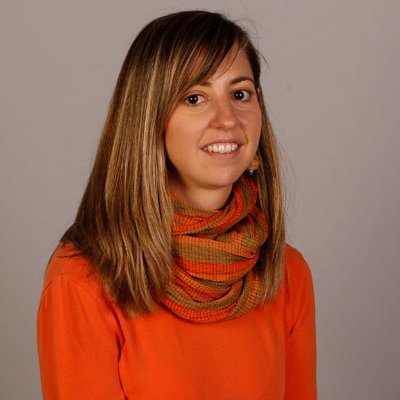
Tareixa García de Polavieja Aguilera
Coordinadora de Inglés Sanitario I y II en la Universidad Europea de Madrid
Has visto de 73 resultados
Excellence endorsed by the best
Frequently Asked Questions
Is physiotherapy a good degree?
Physiotherapy is an eminently practical career, with great research opportunities, which as a health activity is socially recognise. In addition, should you choose to study a degree in physiotherapy, you will have a wide range of specialization possibilities, which makes it an activity with a great variability of professional opportunities.
How long is a physiotherapy degree?
The Degree in Physiotherapy is 4-year-long degree with 240 ECTS. At Universidad Europea,it includes 700 hous of simulation and 1200 hours of Clinical Internships. Throughout your programme, you will access to world class facilities including our simulated hospital, physio labs and more.
Where can I study Physiotherapy in English in Spain?
You can study Physiotherapy at Universidad Europea. We have been chosen as the first private center and the second best in Spain, to study the Degree in Physiotherapy, according to the 2022 ranking of the newspaper "El Mundo". Should you choose the degree in physiotherapy, you will have access to a top faculty made up of experts in their area of knowldege. Many of our professors are also working professionals, meaning you will get the very latest information and practices in the physiotherapy world.
What does a physiotherapist do?
A physiotherapist is a qualified professional capable of diagnosing and treating multiple ailments and dysfunctions related to Physiotherapy, making responsible decisions in sport rehabilitation processes or other types of injuries.

